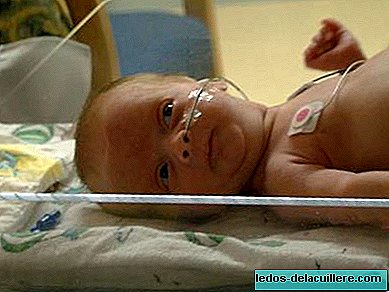
In approximately 30 percent of births, the mother is given antibiotics at birth when an infection with the streptococcus bacteria has been detected in the last weeks of pregnancy. This bacterium does not cause damage to the mother, nor if it comes into contact with the skin of the newborn during childbirth, but if it passes into her lungs it could have serious consequences causing pneumonia and neonatal sepsis.
Give antibiotics to the mother during childbirth It is a measure recommended by SEGO to prevent this risk, but according to research conducted by the Higher Council for Scientific Research (CSIC), also alter the intestinal flora of the baby increasing the risk of suffering several pathologies.
The initial colonization of the baby's intestine after delivery is key to your health. Inside the amniotic sac, it is in a sterile environment, but at birth its intestine is colonized by different microbial communities according to the way it was born (the baby born vaginally is colonized by the mother's bacteria when crossing the birth canal , the one born by caesarean section no), how it is fed, etc. The ideal for the proper development of your immune system is to "contaminate" your mother's microorganisms, that is, be born vaginally and fed with breast milk.
According to the CSIC study published in the prestigious magazine Journal of Pediatrics, perinatal use of antibiotics, including intrapartum prophylaxis, alters the process of establishing the intestinal flora or microbiota in the newborn at least during the first month of life.
To verify this, the team of researchers has studied the feces of 40 newborns, 27 premature and 13 full-term, during the first three months of life. They analyzed the intestinal flora thanks to massive DNA sequencing technology and found smaller amounts of commensal microorganisms, such as bifidobacteria and bacteroides, which are part of the normal microbiota, known as "good bacteria." This was also much more pronounced in premature babies.
These new findings put under the magnifying glass the convenience of using antibiotics just at the time of delivery and opens the way towards new intervention strategies that protect the baby from serious infections and at the same time limit the impact on his intestinal flora.












